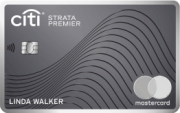The content is accurate at the time of publication and is subject to change.

The CARD Act of 2009 makes it more difficult for anyone under the age of 21 to qualify for a credit card. However if you are a college student and you can demonstrate an income and the ability to pay off your debts, you may be eligible to get your own line of credit. As long as you can manage not to give in to the credit card crazies that will try to entice you to spend beyond your means, using a credit card at a young age can be beneficial. Here’s a few tips to help you:
Establish Your Budget
First are Foremost, the best thing you can do is sit down and figure out your budget. Adults do this all the time; it is a part of personal money management. The principle of a budget are simple – figure out how much money you have coming in (your income) and figure out how much you spend each month (your expenditures). If you have more money going out than you have coming in, you must make adjustments. Factor your credit card purchases into your budget. If you have $100 each month to play with, keep that in mind each time you swipe your card so you don’t rack up too many charges and blow your budget. The reason why people make budgets is to be mindful of what they are spending so they can live within their means and not go into debt.
Do Not Charge Your College Education
It may seem like the easiest thing in the world to throw down your credit card the next time tuition is due but don’t do it! According to a 2009 study done by student loan company Sallie Mae, approximately 30% of students relied upon credit cards to fund all or part of their tuition expenses. Because credit cards have high interest rates, they are not a great option when it comes to paying for school. Look for a low interest or government-subsidized loan instead.
Protect Yourself From Fraud
Carrying a credit card automatically makes you more vulnerable to identity theft. Identity theft is an incredible inconvenience that can take a lot of time and energy to straighten out. Not only that, but it can have long-term negative effects on your credit score. One of the ways that you can make it tougher for thieves to snag your personal information is by not leaving out any bank statements, credit cards bills or other documents with sensitive personal financial information in a place where someone other than yourself can see it. Don’t give out your social security number unless absolutely necessary and never, ever walk around with your social security card in your wallet. Go over your credit card statements very carefully every month to search for unauthorized or fraudulent charges. If you notice any, alert your credit card provider right away.
Don’t Overspend
Perhaps the most important thing to keep in mind when using credit cards is not to spend more money than you have. When you buy something with a credit card you are borrowing the money to pay for it and you must pay it back. This is in contrast to debit cards where the money is deducted directly from money in a checking account. The potential danger of credit cards is that if you charge too much, you won’t be able to pay off your balance in full each month and you will have to carry the outstanding amount into the next billing period. Interest will accrue on whatever that outstanding balance is, increasing the amount you will have to pay back. A few “harmless” splurges here and there can add up and end up costing you much more in the long run if you don’t pay them off right away.
The sooner you begin practicing responsible credit card behavior, the better. So what are you waiting for?







